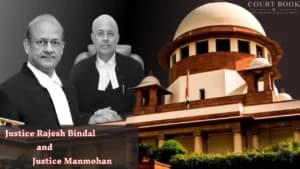The Bombay High Court has quashed a disciplinary order that had stripped a retired Central Excise Superintendent of his entire pension and gratuity. The Division Bench of Justice M.S. Karnik and Justice N.R. Borkar, delivering judgment on October 17, 2025, held that the government’s disciplinary action was barred by limitation under Rule 9 of the Central Civil Services (Pension) Rules, 1972.
Background
The petitioner, Somshekar Kashinath Babaladi, aged 75, retired as Superintendent of Central Excise, Thane-II Commissionerate. A native of Karnataka, he belonged to the “Hindu Golla” community, recognized there as a Nomadic Tribe (NT).
His troubles began long after he had left service. In 2008—four years after his voluntary retirement—the Central Board of Excise and Customs issued him a charge-sheet alleging that he had fraudulently claimed Scheduled Tribe (ST) status to secure his appointment in 1976 and a later promotion in 1991.
The department subsequently withheld his pension and gratuity, accusing him of misusing reservation benefits. After a departmental inquiry, authorities imposed a permanent forfeiture of his entire pension and gratuity in 2013. His challenge before the Central Administrative Tribunal (CAT) failed in 2024, prompting him to approach the High Court.
Court’s Observations
The Bench observed that Rule 9(2)(b)(ii) of the CCS (Pension) Rules serves as a protective barrier for retired employees, preventing disciplinary proceedings for events that occurred more than four years before their initiation.
“The rule fortifies the principle of fairness and safeguards the legitimate expectation of finality in service records,” Justice Borkar remarked in the judgment. The bench further clarified that disciplinary action beyond this limit “would be liable to be quashed as arbitrary and illegal.”
In this case, the alleged misconduct dated back to 1976 and 1991, but the charge-sheet was issued in 2008—well beyond the statutory period. The judges noted that the department’s argument of a “continuous cause of action” was misplaced.
“The respondents have completely proceeded on the wrong premise that the cause of action is continuous,” the court observed, adding that “for the events that took place in 1976 and 1991, without any misrepresentation on the part of the petitioner, it would be unfair to make him suffer for no fault of his.”
The Court found that the petitioner had never claimed ST status in his attestation form, where he had clearly mentioned his community as “Hindu Golla, Nomadic Tribe.” Any mistaken classification as ST, the Bench held, was due to the department’s own oversight.
“If the department in its own wisdom considered the petitioner as belonging to ST and conferred the benefit on him, the petitioner cannot be made to suffer for that mistake,” the judges stated.
Taking note of the petitioner’s advanced age and the prolonged legal ordeal, the Court decided in his favor. It quashed the CAT order dated 31 July 2024 and set aside the 2013 disciplinary penalty that had deprived him of his retirement dues.
The High Court directed the Union of India and the Commissioner of Central Excise, Thane-II, to release 50% of the pension arrears (from August 2013 to August 2025) within three weeks, along with his gratuity. It also ordered that his monthly pension be paid regularly from August 2025 onwards.
Case Title:- Somshekar Kashinath Babaladi vs Union of India & Anr.
Case Number:- Writ Petition No. 8617 of 2025















